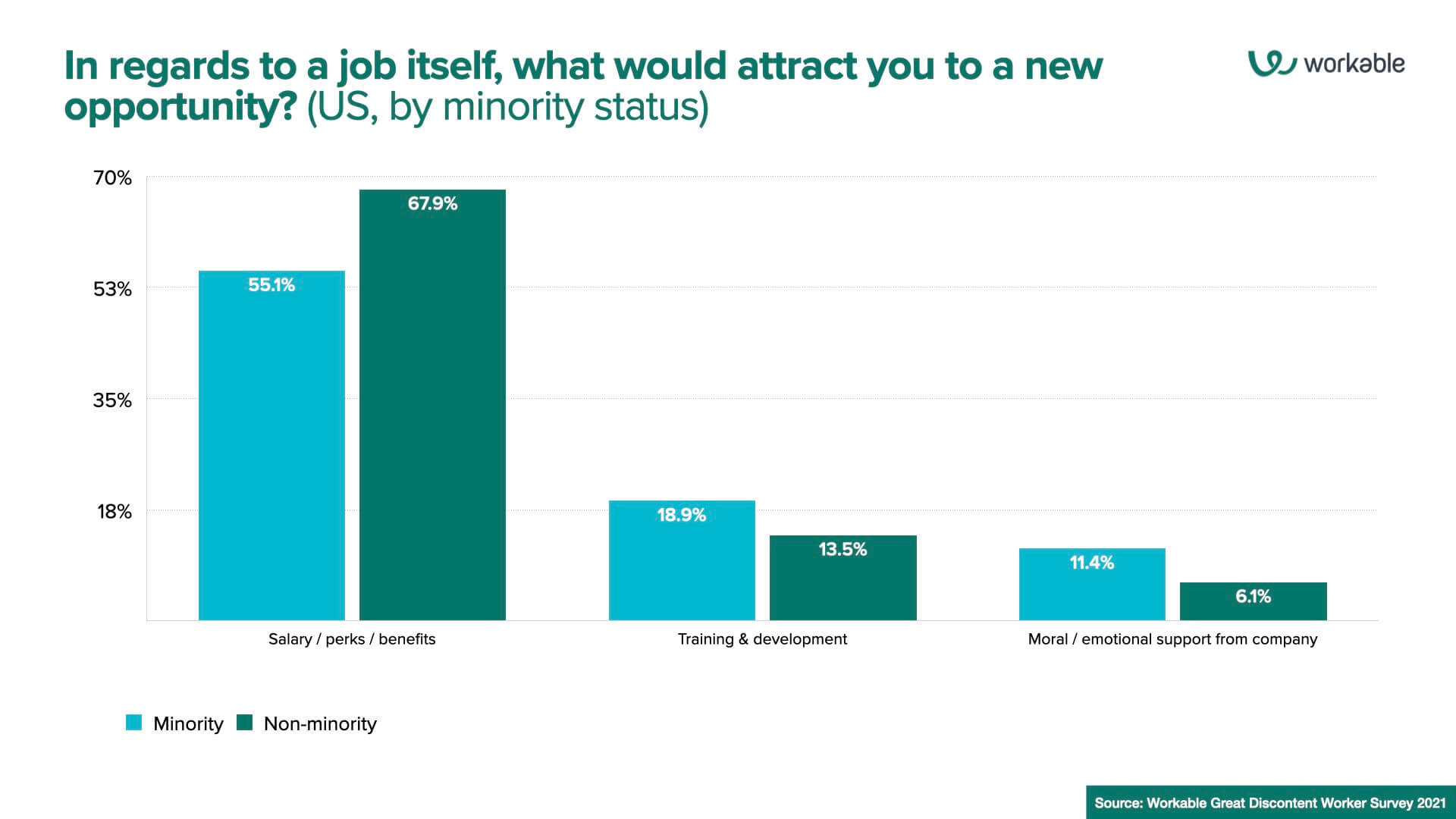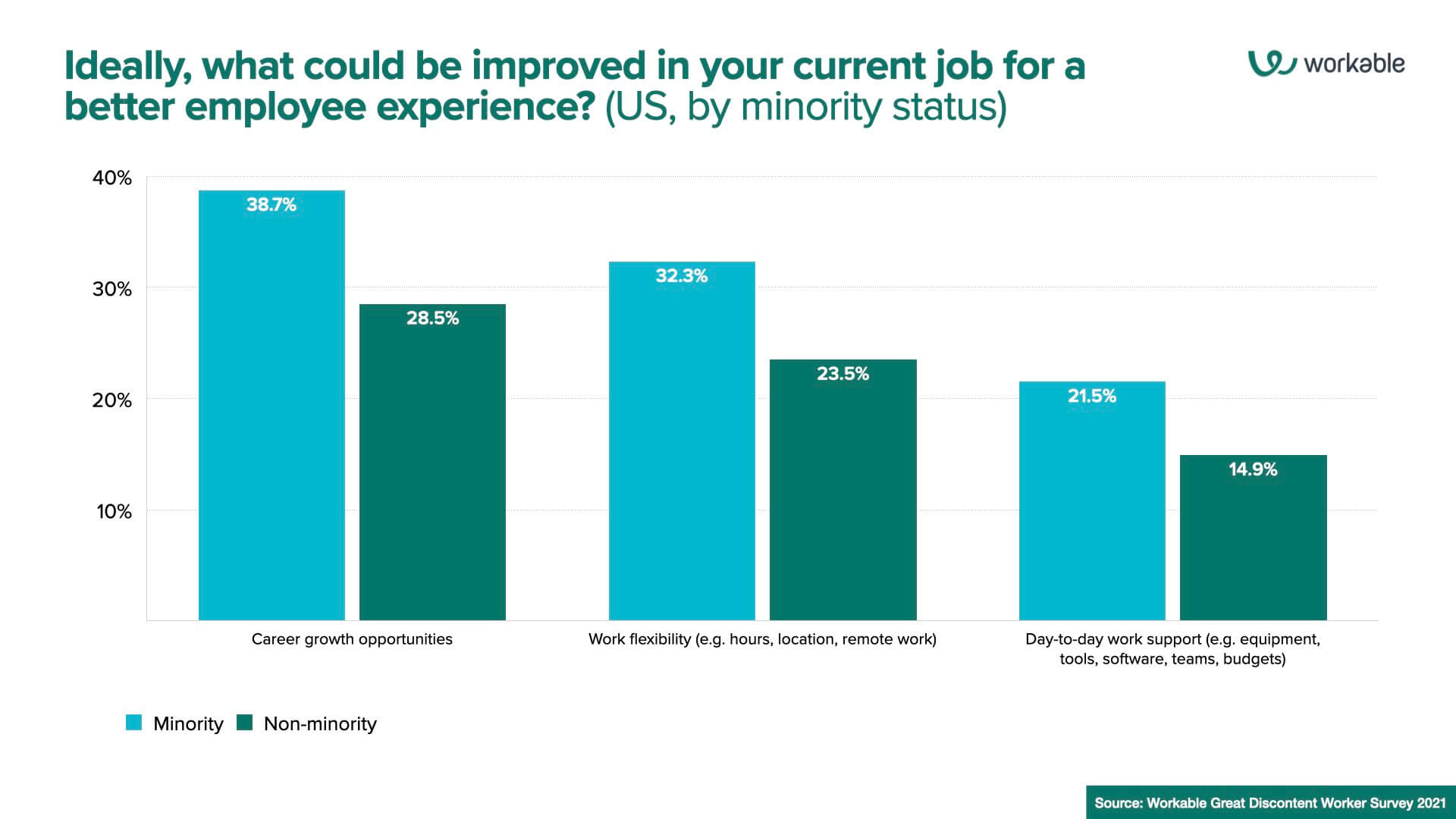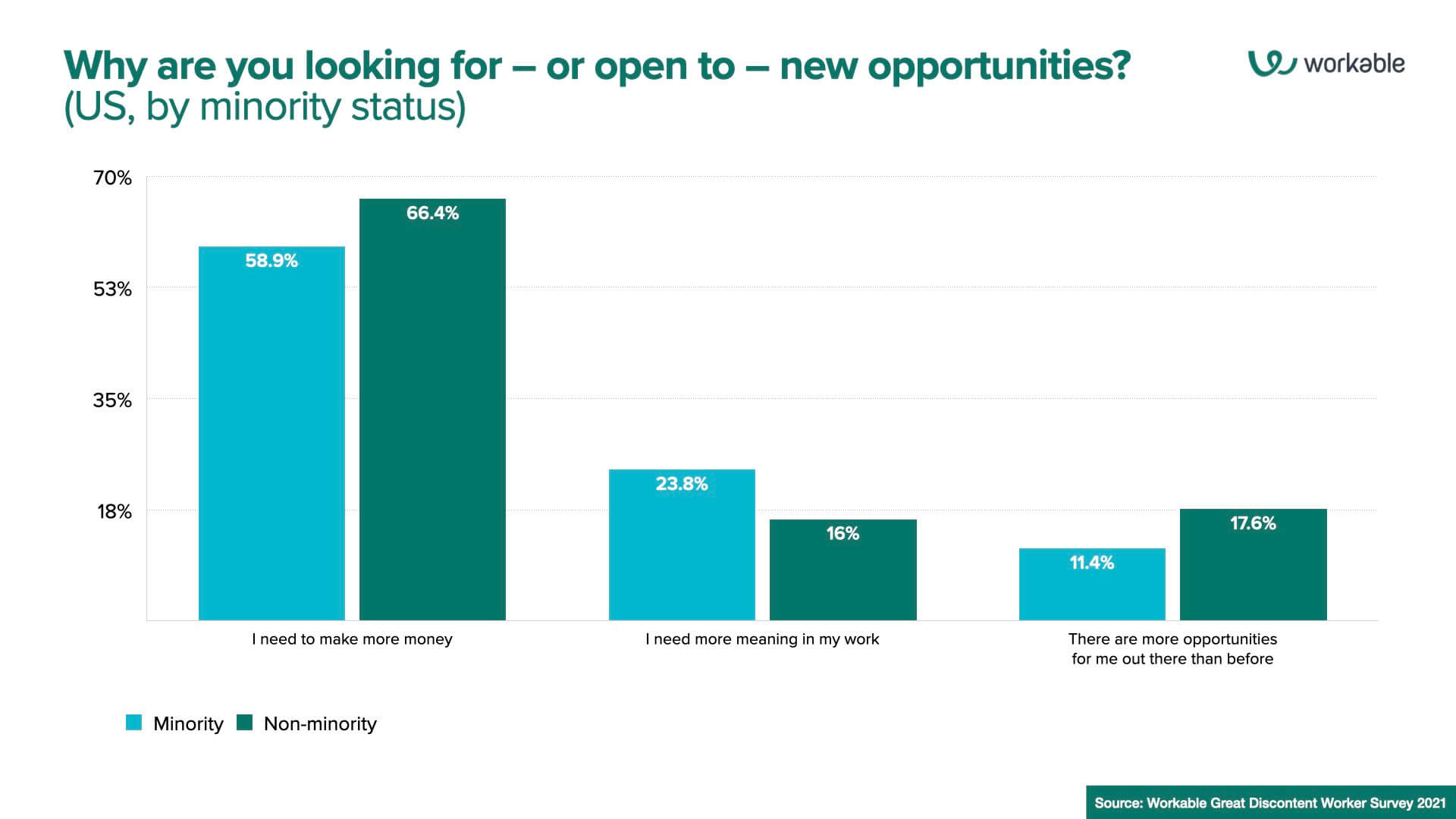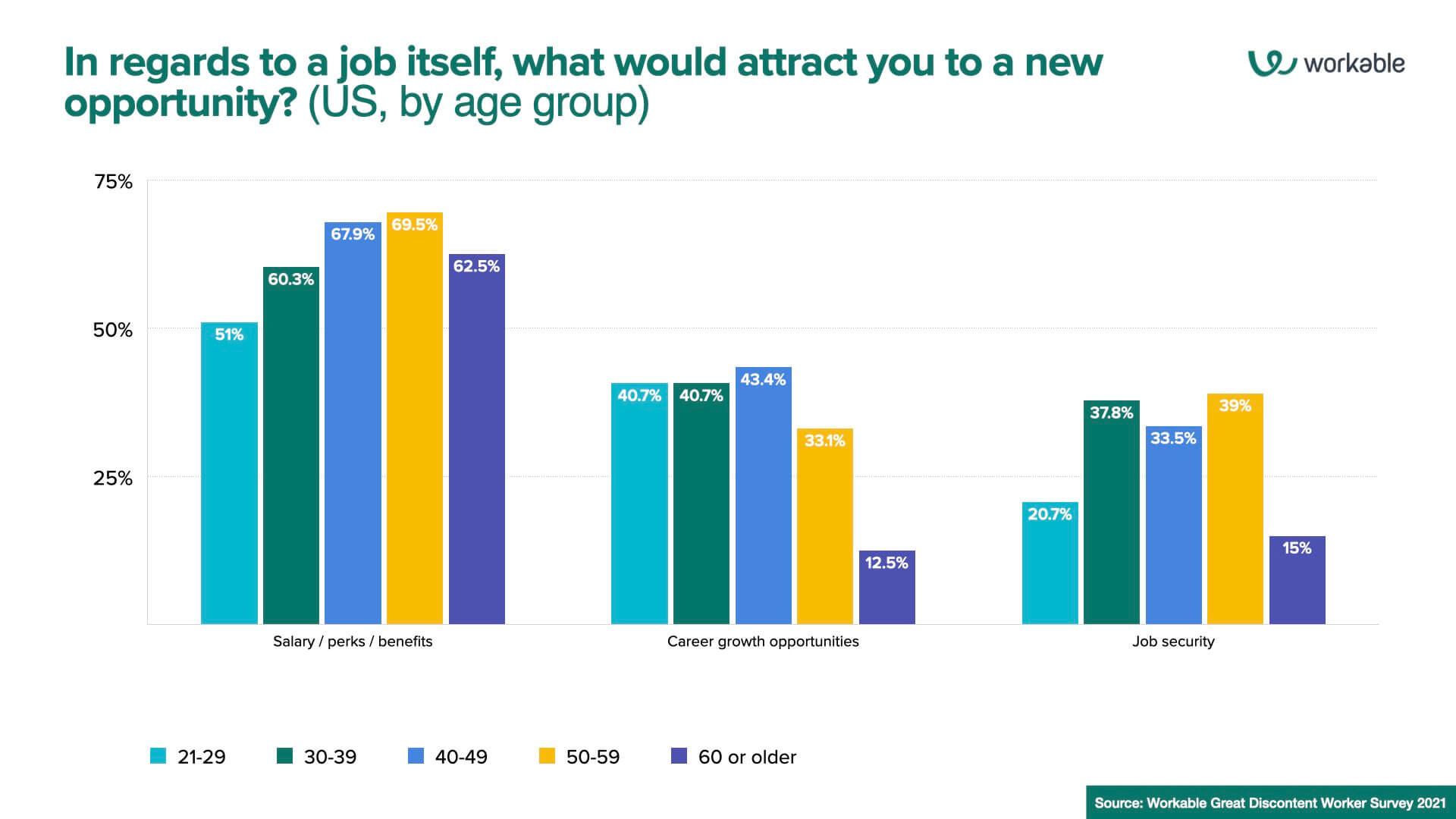Not everyone in the US values the same things in a job
Of course, people are not all the same. While compensation remains first and foremost across all groups regardless of gender, minority status, age, and whatnot, some groups put more value on compensation than others. Also, the next most popular features of a new job are vastly different across different groups.

So, let’s take a look at what those popular features are for each demographic, according to our Great Discontent survey of 750 workers in the US.
Females want more flexibility
First, we found differences by gender identity when asking about top attractors for a new opportunity. Those identifying as male are attracted to more job-specific factors including compensation of course (67.3% vs. 61.8%), clarity of job role (23.3% vs. 19.1%) and especially job security (39.4% vs. 25.5%).
Those identifying as female pointed to factors not necessarily about the actual day-to-day job itself, but rather about the supportive aspects of working life. For instance, if a mother is able to leave work early to pick up her kids or meet other home life obligations – all with the express support and encouragement of their employer – that’s hugely valuable for them.
The data shows this: work flexibility (44% vs. 31.6%) and moral / emotional support from the company (13.6% vs. 9.4%) are more important for females than males.
This is not to suggest that job-specific factors are not important to those identifying as female – rather, these responses indicate that there are other needs that have to be met in order to make their working arrangement feasible and better aligned with their personal needs and priorities.
“With more moms in the workforce than ever, there is flexibility lacking in schedules to accommodate children related needs. Child care is astronomical and salaries are not reflecting that.”
Minorities want more support
One of the demographic questions we asked in the survey was; “Do you identify as a member of a minority group (be it race, ethnicity, language, religion, country of origin, sexual orientation, gender, or another characteristic)?”. A full third (33%) say they do, compared with 61.6% who say they don’t, and 5.3% prefer not to say. So we also looked at responses based on those answers.
We found significant differences in minority status here as well, particularly that compensation is more important for non-minorities than it is for minorities (67.9% vs. 55.1%).
So, what’s more important in a new job opportunity for someone who identifies as a minority? Training & development (18.9% vs. 13.5%) and moral / emotional support from their company (11.4% vs. 6.1%) top the list in terms of how much they differ from non-minority answers.
Likewise, when asked about what their current employer could do to improve employee experience, minorities pointed to career growth (38.7% vs. 28.5%), work flexibility (32.3% vs. 23.5%) and day-to-day work support (21.5% vs. 14.9%) as areas in need of improvement.
Of those who are open to other opportunities, those identifying as a minority are much more likely to pick “I need more meaning in my work” (23.8% vs. 16%) as a reason for doing so.
This isn’t to suggest that compensation isn’t important for someone who identifies as a minority – it, as said above, remains the top factor across all groups. It’s also important to note that the question of “Why are you looking for – or open to – new opportunities?” asked respondents to pick just one reason from a list, whereas for the other questions, they could choose up to three items. So if they must choose one priority and disregard all others, compensation will generally top the list.
Compensation aside, these results indicate that minorities are more likely to want support from their employer in other areas than non-minorities. Plus, there’s a clear need to feel more engaged in their work – likewise something that can be delivered by a thoughtful and empathetic employer as much as the role itself. The overall amplification of voices highlighting DEI in society may be a factor in all that.
Compensation grows with age
Likewise, we found differences across ages. Salary is more valued in older generations, whereas career growth opportunities tend to be more valued by younger generations. Those in the 21-29 age bracket ranked salary significantly less than those in the 40-49 and 50-59 age brackets (51% vs. 67.9% and 69.9% respectively).
Career growth opportunities trends the opposite direction, with those in the 21-29 and 30-39 age brackets valuing that higher than those in the 50-59 age bracket (40.7% vs. 33.1%).
This makes sense, as those in older generations will tend to be past the peak of their career development and starting to migrate out of the workforce, while those in younger generations may see the opportunity to grow in a career as having much stronger long-term benefit than straight-up compensation.
Plus, younger generations tend to have fewer financial obligations than their older, more settled counterparts – and therefore can be more flexible in what they need in a job.
Why is all this stuff important?
Let’s face facts. Money makes the world go around. It’s also a powerful measuring stick when showing the value you place on what someone brings to your company. Also, the correlation between money and happiness has been established in studies, including a widely cited one by Matthew Killingsworth of Penn’s Wharton School in Philadelphia.
And the reason why, says Killingsworth:
“When you have more money, you have more choices about how to live your life. You can likely see this in the pandemic. People living paycheck to paycheck who lose their job might need to take the first available job to stay afloat, even if it’s one they dislike. People with a financial cushion can wait for one that’s a better fit. Across decisions big and small, having more money gives a person more choices and a greater sense of autonomy.”
More choices, more autonomy, more command over all aspects of life. Keep that thought in mind as you proceed in your talent attraction game.
This is an excerpt from our Great Discontent survey report – want to read the whole thing? Check it out here.








